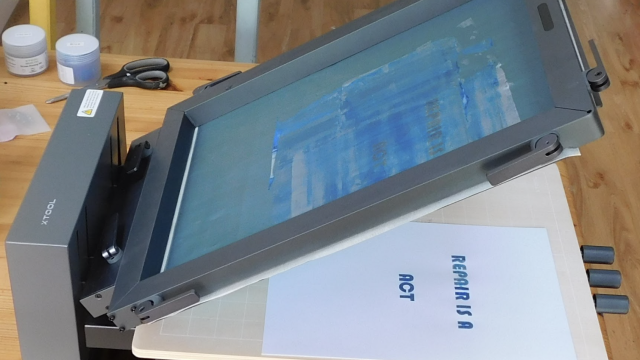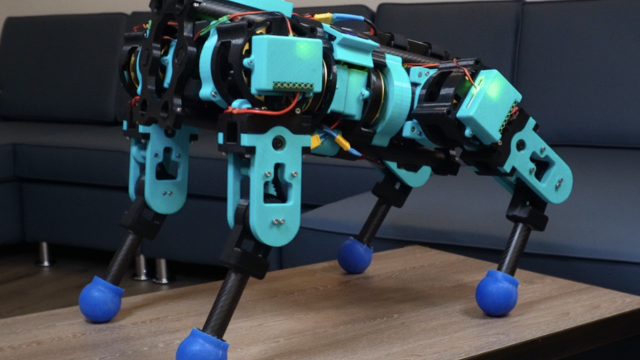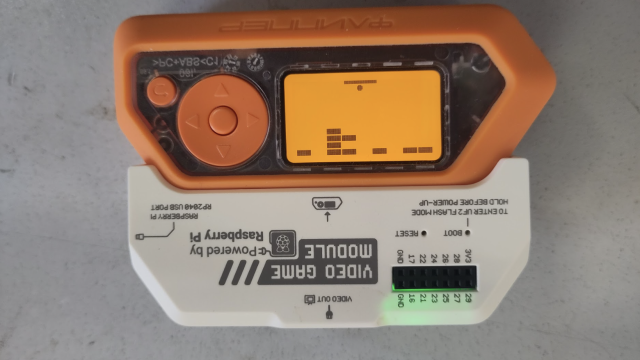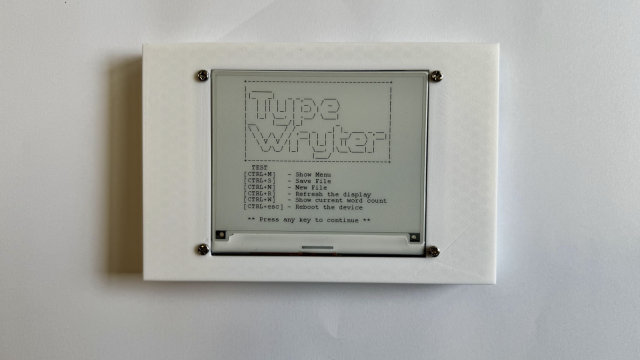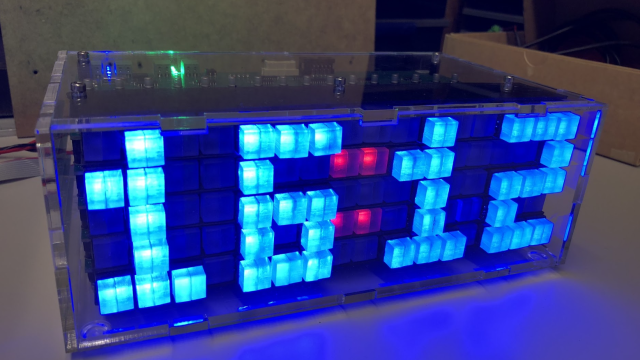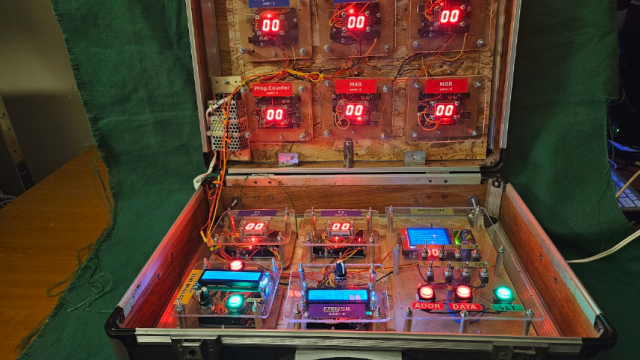HackSpace Thanks for having us over, Al. One obvious question, looking around at all this stuff is, where do all your tools come from?
Al A lot of them are just given to me. Anything in a green box is basically the stuff I bought: your bog-standard jigsaw, your bog-standard orbital sander; all the things your dad had. I did get a circular saw – they’re really handy – and a big drill. Job’s a good ’un. You can hang a picture, you can build a little table, that’s it. And when I started talking to actual makers and craftsmen, they were like, “no, you need an angle grinder, you need a bench grinder.” You need a drill-press – you can’t drill a straight hole unless you’ve got a drill-press. Everyone was kind of donating their old stuff to me when they upgraded. “You can have my old pillar drill, I don’t use it, and it’s not heavy-duty enough.” Or, telling me that I could have their old chop saw for £20.
HS That’s amazing.
Al It’s fantastic, and the more people I meet in the community, the more this is a recurring thing. People will say things like “I’ve got more tools than I need, it’s a hobby. If it gives me an excuse to buy the next one, you take it off me, you make something, you pass it on to the next person.” It’s like a chain.

Everyone’s got that attitude, it’s great. On the podcast that I’m a part of, Fools With Tools, we’ve got loads of people in the same situation and they all say, “Oh, I really need this tool”, and within seconds there’ll be ten people popping up to say “I’ve got one, you can have it. Where do you live? I’ll drop it off”. We’re starting to build this network across the UK of people helping out with tools.
If there are things that I don’t need, I can take them down to the makerspace in Leeds; they’re always desperate for tools that work. It’s just this really nice, recycling, don’t throw stuff away, fix it… I’ve not spent any money on tools in years. Maybe the odd hand tool, but apart from that, no.
HS Are you down there often at Leeds Hackspace?
Al Yeah, because there are a few things that I don’t have. So I don’t have a table saw for example, so if I’m doing any big work, I need that. I didn’t have a drill-press until recently, so it’s handy for that. But it’s all the weird, obscure tools that they’ve got, like old imperial taps for cutting threads, and things that have been collected over the years.
Tools-wise, it was just a case of picking stuff up as I go along. I had Richard Morley (@brainfizzUK) at the weekend, and he was teaching me how to use a router, and he just gave me some clamps, because he knew that I didn’t have any. But he also, more importantly, knows that they’re useful, so it’s not just that you’re giving people tools, you know that they’ll use them.
Someone told me, “You really need an angle grinder” and gave me one. And then, the second I start using one, I realised that yes, I did need an angle grinder. I can carve grips for guns because I’ve got an angle grinder now. I had absolutely no idea how I would have done that before. Do I just stand there with a file and go at it for several hours? I did that in seconds. I hurt myself, but it was fun and I learned a lot.
I guess we all try to help each other out, which is just beautiful. More and more I understand why this community is so good, everybody loves it, everybody’s involved and is happy to give advice and to help each other out.
I guess it’s the same down at Leeds Hackspace. I like going down there because they’ve got tools, but I like it more that I can ask someone about a problem I’m having with the Raspberry Pi or something. Or, if I can’t get a motor driver working, someone’ll point to a guy in the corner who’s a motor driver expert – go and ask him. A lot of people down there aren’t even making anything, they’re just there because they want to help, and they want to give advice and share skills.
HS There’s a lot of sharing going on in the maker world. In online communities, there’s a lot of gate-keeping. Gaming for example, seems to be incredibly toxic. And making is the complete opposite.
Al It’s not just sharing in terms of tools and skills. People also get a lot of emotional support from making. A lot of us are not necessarily the most outgoing people, but all of a sudden … a lot of people talk about men’s health issues, you know. Like you say, toxicity and bullying – especially on YouTube. There might be some horrific comments and people get upset by that – but then when you come and talk and open up to, essentially, strangers… Until Makers Central, I’d not met my fellow podcasters in the flesh, but we all kind of had this trust in opening up to people and sharing everything.

HS What you said about men’s health, that’s the whole point of the Men’s Shed movement. What you make is absolutely secondary to who you make it with.
Al I come out here for a bit of sanity after the day’s work and the stress. I come out here to regress, to have fun, and be a kid again. I’ve got 1000 subscribers on my YouTube channel, which is unbelievable; I didn’t ever think that would happen, I was only doing this for a laugh. For that video, it happened to coincide with Movember, so I was sporting a ridiculous inverse handlebar moustache.
I was able to just talk to people. I didn’t know who was watching, but I was able to talk about a cause that I believe in every year, shave my face for a joke so people take the piss out of me and raise a few quid, but all of a sudden there’s 1000 people watching me. What started out as me having a laugh in a shed turned into me being able to have a conversation about things that I’d never done before.
A lot of people got in touch with me and talked about their problems and challenges and stuff. Around the world … people opening up about issues they’d never talked about before. It’s unbelievable. People who have a platform almost have a obligation to use it in the right way. Without being preachy, I mean, yes, make people laugh, but also do a little bit of good as well. You might influence just one person to make a different decision to the one they were going to make, because you’ve said the right thing. That’s the great side this this. But also, I get to make Wolverine claws.

HS As well as the Fools With Tools podcast, do you do a lot of collaborating with other makers?
Al I try to. At the moment, it’s a question of time. I’ve got something in the pipeline, building a bike. Someone I know has a logistics company and he wants to do a promotional thing in town where he can take paperwork around town. He wants an electric trike with a big archive box on it. We were discussing it, and it could be this cool-box-style ice cream or hot dog box, like they have outside baseball games, with the big wheels. And then we thought, because he has a logistics company, it could be a miniature trailer, like a tiny HGV wagon that looked a bit like Optimus Prime. Because he knows me, he can say, ”I want this, but with your nonsense madness on top of it. What’s the Al style that you can put on this?”, and then work out the electronics and the mechanisms that it‘ll need, the power training and stuff. That’s a really big build, and it’s going to be in the works for a while.
I want to do more collaborations, it’s just a matter of time.
There are a few makers locally who I’d like to work with. There’s a chap called Owen in Leeds, who makes knives. There’s a guy called Tim in Huddersfield; he’s an electrician and he does a lot of woodwork as well.
HS Metal, wood, computing – you seem to do bits of everything.
Al That’s what appeals to me, that’s what I like doing. I know absolutely nothing about one particular thing, but I know enough about lots of things. I know enough to get by. I’d never done anything with compressed air or pneumatics, and so building this cannon I had loads of questions. The instructions online are all for American standard parts and in Imperial measurements. British gas threads go the wrong way round, so I’ve been completely winging it, picking up things from here and there, and it works.
Bits of everything is what inspires me. I studied electronic engineering at university, and that was what got me into fiddling around with stuff, taking things to bits and seeing how they work. So I can make an electronic device quite happily, but then I need something for it to live in, and wood’s just the easiest thing to work with. But then when I found out that you could cut metal! I’m working on a full suit of armour made out of aluminium.
This is something I’d never done before, and when I found out that it’s just as easy to work with metal, I cut these parts out with a hacksaw. It’s not the correct way to do it – you should use a big shear and use the correct equipment, you could laser-cut it or use a plasma gun. But if you put a woodworking blade in a jigsaw, you can cut aluminium, it’s fine.

HS Where did you get the bits from?
Al A lot of it is scrap. I’ve got a friend who installs solar panels, so he’s got all sorts of scrap-metal kicking about. There’s a galvanised steel pipe in there [Al gestures to a pile of stuff in the corner of the shed]. That was a chimney flue, but it’s going to be the silencer of the rifle.
I also try not to buy anything. What I’m doing is comedy, it’s hacked together; I’m not doing fine woodworking. None of this is for sale, you know, the only person who has to worry about build quality is me. If it works, it works. With the beer fridge, I had to learn how to make it work, but the principle, the voice activation and the electronics of it, that’s what I was trying to learn. I want more voice control in the shed, because it’s only me on my own. I want a Jarvis, like in Iron Man.
HS Ah yes, the beer fridge. In one of your early videos, you build a voice-activated beer fridge into your workbench. Is that still working?
Al Yes, the voice control works. You know when you get buzzed into the outside door of a building? You hear a click, then you have to pull it before you push it, because the strength of the solenoid cannot hold the door. It’s the same with the beer fridge. It works, but you’ve still got to unlock it. It electrically unlocks it, but doesn’t physically unlock it.

There are a couple of bungee cords as the spring that makes the beer pop up, coupled with an electronic door-lock. That’s how, in my head, it works. How do you unlock something electrically? With a door-lock. It runs off 12 volts, and you plug in into a Pi. I know enough circuitry that I can convert 12 volts into 3 volts, so I can translate the inputs and outputs from the Pi into something that will power that. I cut a hole in the top of a fridge, so when I give the command, beer pops up.
The voice activation thing for me was kind of a game-changer. It got put to the wayside a little bit, because of Echo and Google Home. I think they became so cheap and so available that people didn’t need to push using their own versions any more. So I got the Google API – that’s what I used with the hack bench – and they put limitations on, like you couldn’t use the voice activation to wake it up. On a Google device you can say, “Okay Google”; on the API you can’t do that.
I got around that by recreating a button press with a voice command. I bought it to recognise my voice as a button being pressed. You can replace pin 7 on the Pi as an input with a line of code, for example. Once you’ve got around that, you can use it as a Google Home, telling it to play this or that song on Spotify, or turn down the Philips lights, or whatever.
I much prefer the analogue world. If I could voice-control the woodchopper, that would be way more exciting. The plug died on my lawnmower, so I could plug it in, but I couldn’t turn it on or off. Suddenly it was lethal because I couldn’t turn the lawnmower off. It could either be on and running, or unplugged. So instead, I hooked it up with voice activation and announced to it “turn on the lawnmower!” That wasn’t me trying to be clever. It was me solving a problem. Otherwise, I had this lethal thing spinning constantly. But voice activation gives you so many opportunities. If you can work out how to do one thing, you can do a million things. I can code, I understand it a little bit. But I love the things that you can do with it.
HS Is there any reason you chose a Pi rather then one of the many, many other single-board computers on the market?
Al I am not old enough to have been part of the BBC Micro era in the 1980s. I know it’s had a resurgence recently with the little mini one you can get. The micro:bit. I was also epileptic as a kid, so I wasn’t allowed to get involved with computers. So, as a 20-year-old studying electronic engineering at university, I went for it: computers, computers, computers. When the Pi came out, I could have the power of it in my hand, it cost me £20, and I could do what I want. Control the inputs, make a retro console in my living room…
I’ve got two Pis now, a 2B and a 3, I think, and both of them have been a million things already. I’ve used it as a console, I’ve used it as a network-attached storage system with a little hard drive, [for] voice control activation, [and] as a media server, and I love it for that. You can get this one little cheap thing straight out the box and just start tinkering with it. I love being able to modify things.
Having that understanding and that power, being able to write your own stories in Scratch and Python, they’re just unbelievable. Incredibly simple to understand, but there are real-world consequences, you can attach things up to it. Even just turning on an LED: all of a sudden it’s like, “if I can turn on an LED, I can have beer pop out of my bench”. It’s the same thing. That for me is the wonderful thing about it. I just wish I had more time to get into the guts and the brains of it, and really understand it.
There’s so many rules when you’re a kid; when you become an adult and you realise that you can break the rules… If I’d had a Raspberry Pi when I was a kid, I’d be on Mars now.

